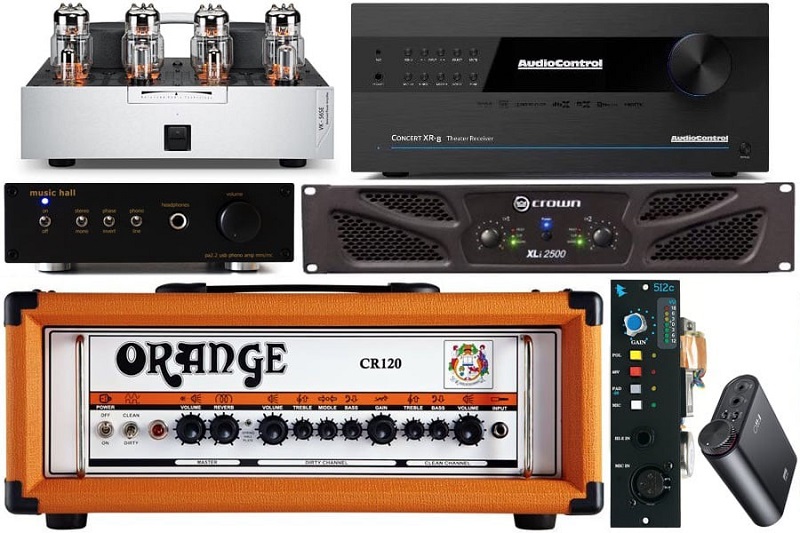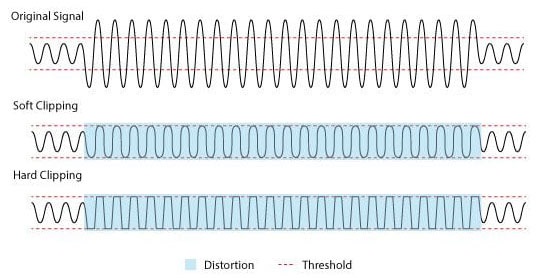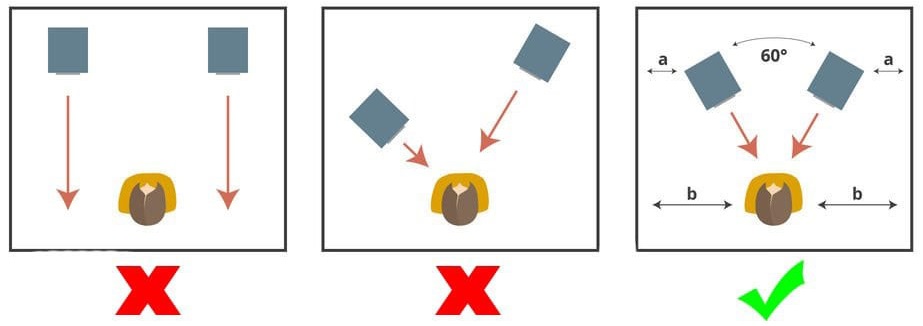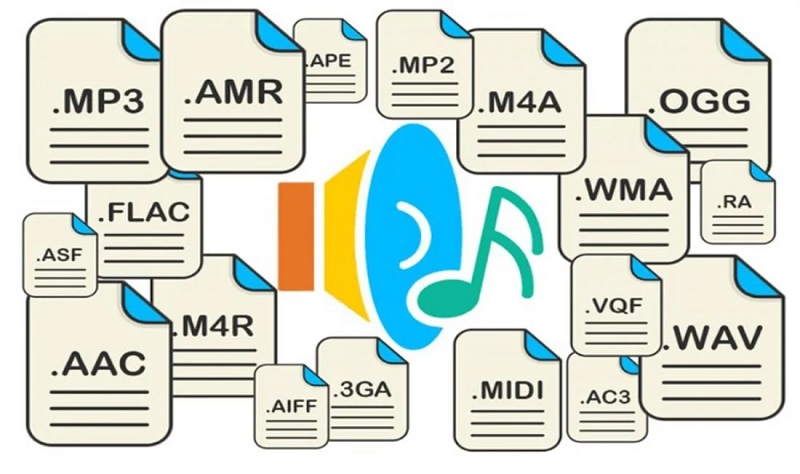Table of Contents
Definition and Functions of an Amplifier
The quality of audio/sound varies depending on a variety of factors, including the recording, mixing, mastering, formatting, and reproduction processes, as well as the environment and playback system of the end user. In order for a quality sound system to function properly, an amplifier is essential. What effect will the amplifier have on the quality of the audio, as well as the sound produced by the speakers or headphones?
What is the effect of amplifiers on sound quality? Audio amplifiers are designed to amplify audio signals linearly in a linear fashion and are, therefore, not technically capable of improving or deteriorating sound quality. There is, however, a risk of sound quality being compromised by amplifiers, amplifier settings, and amplifier-speaker combinations that are not optimal. The use of amplifiers, however, is required for the proper operation of speakers and headphones.
Here, we will discuss the role of amplifiers in a broader-quality sound system and how they may (or may not) impact the quality of the audio they amplify.

Audio Quality & Sound Quality
It is difficult to define the terms “audio quality” and “sound quality”.
Generally speaking, audio quality sound refers to the subjective and objective characteristics of a signal. In order to determine the quality of audio, factors such as frequency response, dynamic range, noise, distortion, and stereo width are taken into consideration.
As a general rule, sound quality refers to the timbre and characteristics of a sound. Sound quality refers to how well and quality audio sound is reproduced as sound when it is played (via speakers or headphones). It gives an indication of how the audio sounds and, more importantly, how accurately the playback system can reproduce the audio.
In a nutshell, the answer to “Will amplifiers improve sound quality? No, amplifiers do not improve sound quality. The purpose of an amplifier is to increase the level of an audio signal. It’s not supposed to improve recorded audio or reproduce it objectively or subjectively.
While amplifiers help you get a louder playback volume, they don’t have nearly the same impact on sound quality as other components in your audio system. Speakers, for instance, will have more of an impact on overall sound than any amplifier, no matter how expensive.
The amplifier, on the other hand, may struggle to improve sound quality without the rest of it, but it does have the power to make it worse.
Sound quality can be improved by upgrading the amplifier if its components and signal(s) are weak.
Amplifiers and speakers must be matched for a perfect sound.
To choose the right amplifier for our speakers (or vice versa), we have to take the amplifier’s specifications into consideration. The most important thing is to check the impedance, power, and sensitivity ratings of the amplifier.
Unless other items are also upgraded, a high-quality amplifier won’t improve sound quality much. Sound reproduction can still be messed up by a poor amplifier.

Amplifiers: What Do They Do?
Understanding what an amplifier is designed for will help you understand its impact. An amplifier boosts an audio signal, just like we mentioned before. In order to do so, the signal is amplified by using electricity (normally from the mains).
Audio amplifiers come in different types, including preamplifiers, power amplifiers, and integrated amplifiers (preamp and power amp combined).
In the world of audio, there are different signal levels.
Audio mixes are usually recorded at line level (+4 dBu or 1.228 VRMS). There is one exception: vinyl records and their players, which are generally at phono level (-60 dB or lower). The mic level is also lower than the line level.
For mixing and recording, preamps boost low signal levels to line levels. There are plenty of phono preamps and microphone preamps on the market.
We need something stronger than line level to drive speakers properly. If you send a line-level signal to a pair of speakers, you won’t get much sound. It’s important to have what’s aptly called “speaker level” signals, which are typically over 10V but can reach 100V or more.
The power of speaker signals is measured in watts (electrical power). You’ll find power ratings on power amplifiers and speakers (output and handling, respectively), so you know what you’re getting.
Here’s where a power amplifier comes in. By increasing the power of the signal from the source equipment, the amplifier is able to drive a pair of speakers effectively.
Considering this, it’s easy to see why an amplifier can’t fix a bad audio source. Creating a better sound will also be tricky if the speakers that get the amplified signal can’t reproduce the nuances.

Here’s a Note on Distortion
If the input signal stayed constant (direct current), an amplifier’s job would be easy. However, since sound is affected by varying pressure in the environment, audio signals have to be AC (alternating current). Amplification may cause distortion because voltage/power fluctuates quickly in an audio signal, especially at high voltages/powers.
There’s a maximum output that all amplifiers can produce. Overriding this output will distort the signal. An amplifier and speakers can get damaged if this is done repeatedly over a long period of time (or a short period in bad cases).
There are times when distortion is intentionally created, like a speaker system designed to give you extra bass (by distorting the low end and, thereby, creating audible harmonics).
However, most distortions are uninvited, and they can ruin the intended sound or distract you. A poor-quality amplifier will cause more distortion, so the sound quality will be worse.
Sound Quality: Can An Amplifier Help?
Sound quality can’t be improved by an amplifier alone, but it can improve other components. High-end, component-compatible systems work more efficiently, so the sound is better.
In high-end amplifiers, linearity means that their output is the same as the original signal they receive, apart from being amplified. Gain on the amplifier is another thing that can make some sounds sound better than others. One small reason is how to improve amplifier sound quality. The cleaner the gain, the less noise will be introduced into the system and, therefore, the speaker’s or headphones’ output.
Here are a Few More Things to Consider
Here are some more key factors to consider. You need speakers that can handle a boosted signal, usually by having a high power/wattage rating. Speaker wires need to be thick enough to transfer signals effectively, as well as the wires that connect them to the amplifier.
When trying to improve sound quality, you should also consider the audio source. Boosting the power of the amplifier won’t improve your playback device’s quality if it’s not producing a quality signal, to begin with. You’ll only amplify the bad audio quality.
Why You Should Care About Watts, Ohms & More When You Want Amplifiers Improve Sound Quality
What You Can Do to Improve Sound Quality
If an amplifier doesn’t necessarily improve sound quality, what will? Again, it’s all relative. In general, the best equipment won’t “improve” sound quality. Instead, it’ll reproduce the audio signal perfectly. It is important to note that this is an ideal scenario that may not be absolutely possible in practice (though we can get close).
We will discuss in this section the factors that will enhance the quality of sound in the context of relativity. As a result of improving the following factors, the potential sound quality of the system will undoubtedly improve.
Speakers
Rather than replacing the amplifier itself, one of the best ways to improve sound quality is to replace lower-quality speakers with higher-quality speakers. A good speaker will be able to reproduce sound from its input signal very accurately, without any distortion or modification.
The frequency response of high-end speakers is typically accurate or, alternatively, is tuned to enhance non-linear perception by the human ear.
As a matter of fact, top-of-the-line speakers can only perform at their best when paired with an amplifier that is powerful enough to drive them properly. It is possible that your sound quality may suddenly deteriorate due to a damaged or weak amplifier.

Speaker Position
In any listening environment, speaker positioning is crucial to the quality of the sound. It is important to remember that the space between the listener and the speakers plays an important role in the listening experience.
Having two (or more) speakers working together creates an excellent stereo sound, but the distance between them will have a significant impact on how the speaker(s) sound at any given location in the room. For surround sound formats, this is equally important, if not more so.
It is ideal to place speakers precisely equidistant from the listener, but this is not possible in a large room filled with multiple listeners. The sound will appear less natural if the speakers are not equidistant.
It is also important to note that positioning speakers on the floor or too close to walls may affect their output. Speakers should be mounted on a stand with few surfaces in the immediate vicinity to ensure optimal fidelity or authentic reproduction of the original signal.

Room Acoustics
The acoustics of a room can have a significant impact on how crisp and clear your sound continues to be.
As a result of the dimensions of the room as well as the objects within the room, there will be natural resonances that, when not addressed properly, will result in the build-up of certain frequencies, the cancellation of others, and even the creation of disturbing rattling, especially when loudspeakers are being used.
Sound waves can be diffused by the shape of walls or objects in the room, thereby improving the room’s response.
You can significantly improve the quality of your sound by learning how to work with the layout of your room.
A room’s size should also be taken into consideration. A large room, when left untreated, will produce a longer reverberation time. Untreated small rooms will result in shorter reflection times, which will often result in a slapback delay sound that is unwanted. The reverberation of a sound is the amount of time it takes for it to drift away from the source.
Audio Format/Quality
Make sure you choose audio formats that sound the best. Lossless digital formats, such as FLAC (Free Lossless Audio Codec), offer a higher level of quality in comparison to lossy compressed formats, such as MP3 (MPEG-1 Audio Layer III). While some streaming services offer hi-fi formats, the quality of streaming audio is notoriously poor.

Equalization
The process of equalization involves adjusting the gain of individual frequency bands within an audio signal. The EQ feature is available on many audio players and even some amplifiers.
Using the ability to adjust the relative levels of bass, midrange, and treble (or more sophisticated bands), a listener may achieve the optimal balance. Additionally, this can compensate for less-than-ideal system performance in specific frequency bands.
Conclusion
In order to provide the maximum quality of sound, a high-quality amplifier will assist all other components in the audio system to work effectively. For our listening pleasure, these devices are essential in order to drive the speakers (or headphones) properly.
In order to improve sound quality, consider the amplifier and speakers as a cooperative team. With the right combination, crispness, tone, and clarity can be achieved, as well as impressive volume levels. A good amplifier can make the difference between perfect sound quality and a poor listening experience, regardless of whether you need to boom out tunes at a party or just want to relax with gentle music in your headphones.







